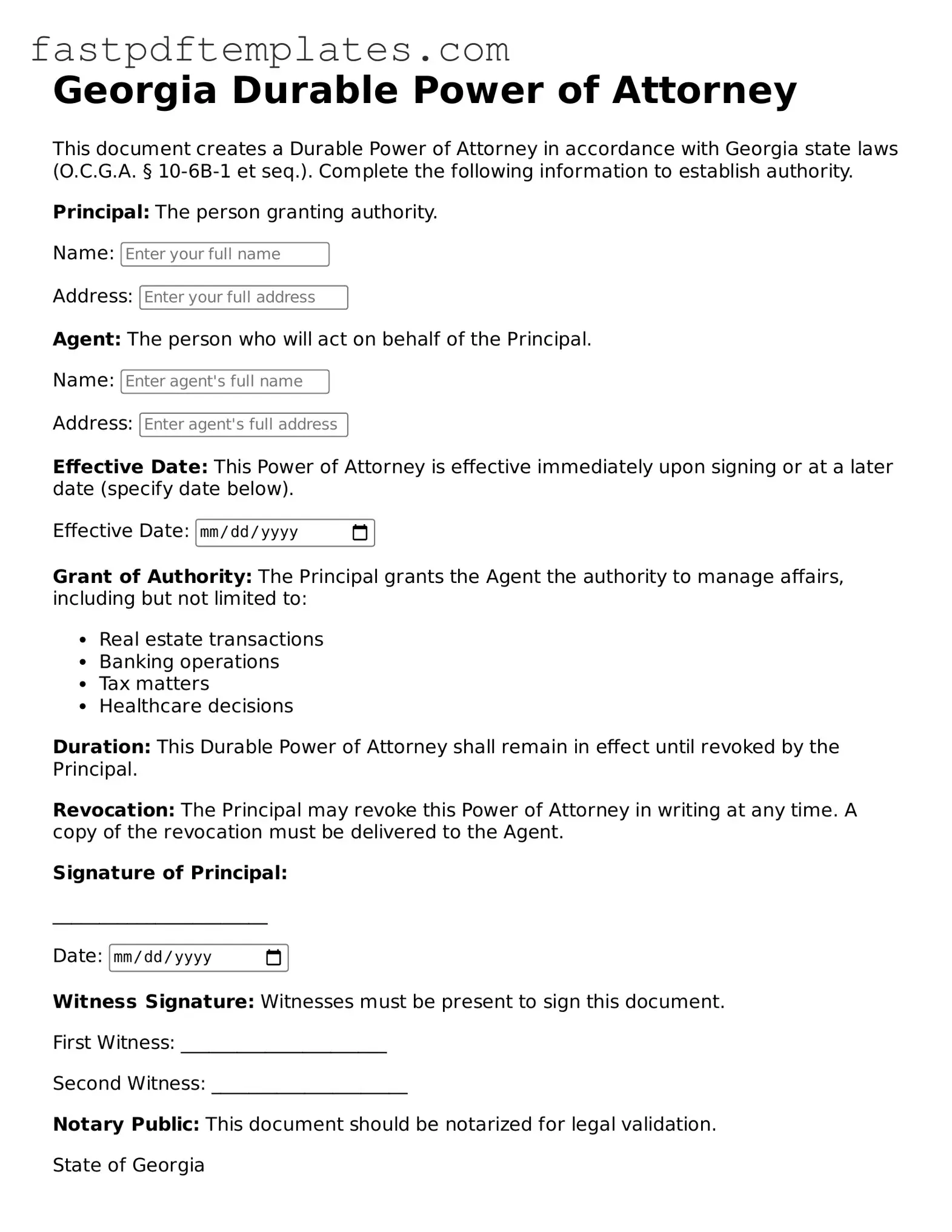Attorney-Approved Georgia Durable Power of Attorney Document
A Georgia Durable Power of Attorney form is a legal document that grants an individual the authority to make decisions on behalf of another person, particularly in financial or healthcare matters, should that person become incapacitated. This form remains effective even if the principal becomes unable to manage their affairs, providing a crucial safety net for individuals facing unexpected health challenges. Understanding its implications and proper execution is essential for anyone considering this important legal tool.
Access Document

Attorney-Approved Georgia Durable Power of Attorney Document
Access Document
Your form still needs completion
Complete your Durable Power of Attorney online and download the final PDF.
Access Document
or
Click for PDF Form
